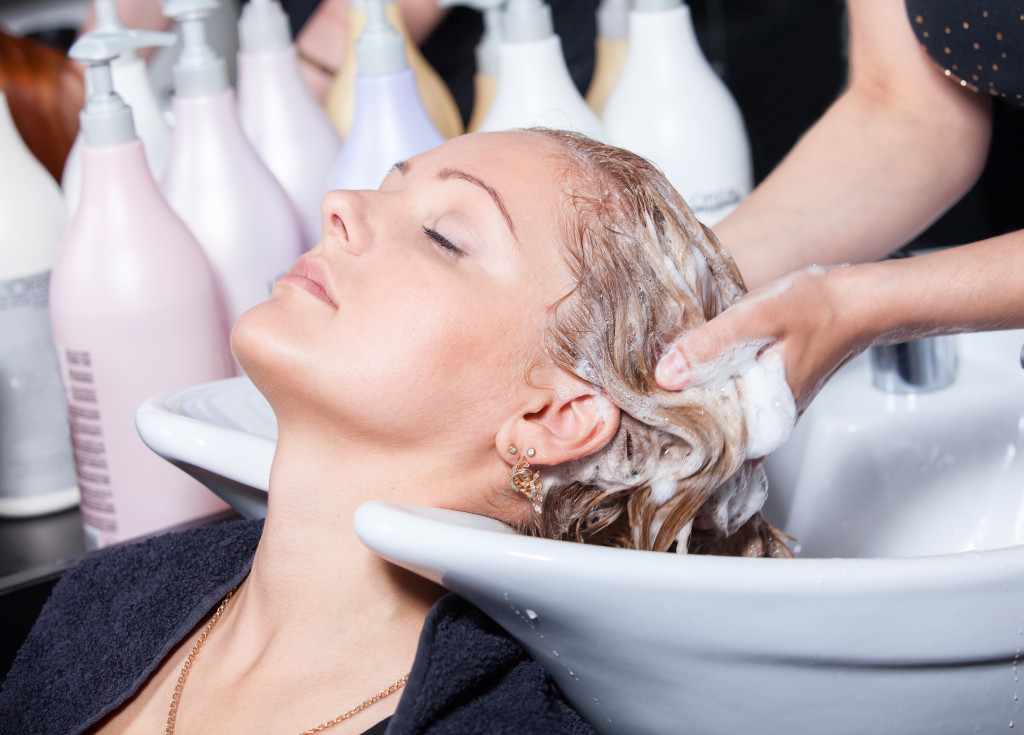Crafting and distributing your own product is challenging, but it can also be exciting. The first step to becoming an artisan is having a unique product to offer your community or clientele. Nowadays, organic products are very much in demand due to the concern about chemicals and harmful ingredients in consumer items.
Shampoos, soap, lotions, and other organic and cruelty-free cosmetics are a good place to start. If you are interested in scents, essential oils, and natural ingredients, this can be a good venture for you.
Here’s how you can start your own organic shampoo and cosmetic business:
Research the Product
Think of what your target audience would be most interested in. For example, if you want to start a hair care line, it will be best to focus on natural and organic products. You can also narrow it further to different age groups such as new mothers who want to use organic baby shampoos or shampoos for kids; career women who can afford hair serums, tonics, and wraps; or aging women who need help with thinning and falling hair. You can even create specific shampoos for men and women who dye their hair.
Alternatively, you can also focus on just one aspect of hair care. If you want to lessen the frizziness, pursue that. If you’re going to eliminate dryness, go for that. It is essential to understand what you want to do before expanding your hair care line.
Test Your Hair Products
 Before marketing online or at a brick-and-mortar store, it is essential to test your product. Organic shampoos behave differently from regular factory-made ones. Since you’re not adding chemicals and additives, the shelf life may not be as long, so be sure to test how long it will last. When starting, it is advisable to create small batches and just pour the shampoo into bottles manually. Later on, as production expands, you will need a filling machine for all of your liquid products.
Before marketing online or at a brick-and-mortar store, it is essential to test your product. Organic shampoos behave differently from regular factory-made ones. Since you’re not adding chemicals and additives, the shelf life may not be as long, so be sure to test how long it will last. When starting, it is advisable to create small batches and just pour the shampoo into bottles manually. Later on, as production expands, you will need a filling machine for all of your liquid products.
Remember to mark each batch with production dates and label them before sending them to friends and family to try out. Let them know that the products should not be stored under direct sunlight because it breaks down the essential oils in the shampoo.
Get Feedback
Ask your testers to be honest about their product experience. You need to know the concerns about using it. You also need to be concerned about possible allergic reactions such as redness, itchiness, or dandruff. Use these reactions to improve your product ideas. If the results are good, you are ready for larger batch production and selling it to the market.
Choose Your Distribution Method
Choosing how to distribute your item is another step to putting your product on the market. Businesses and companies use both the Internet and storefront. To sell to your community or specific groups, you can rent a booth at the farmer’s market or local market to find buyers. You can also look for active resellers who can sell your product to a broader audience.
Get Your Marketing Right
Marketing is a crucial part of starting your haircare business. Marketing plays a vital role in engaging your target audience. Marketing tools are social media marketing, using an influencer, and in-store presentation. Take your time to conceptualize your brand presentation. For example, analyze the effect of influencers in representing your brand.
Your shampoo business can be a hobby, a small side gig, or a full-on enterprise. Some people become artisans late in the game, but find it fulfilling in the long run. It’s about working with what you are passionate about and what truly inspires you and then sharing it with others.
